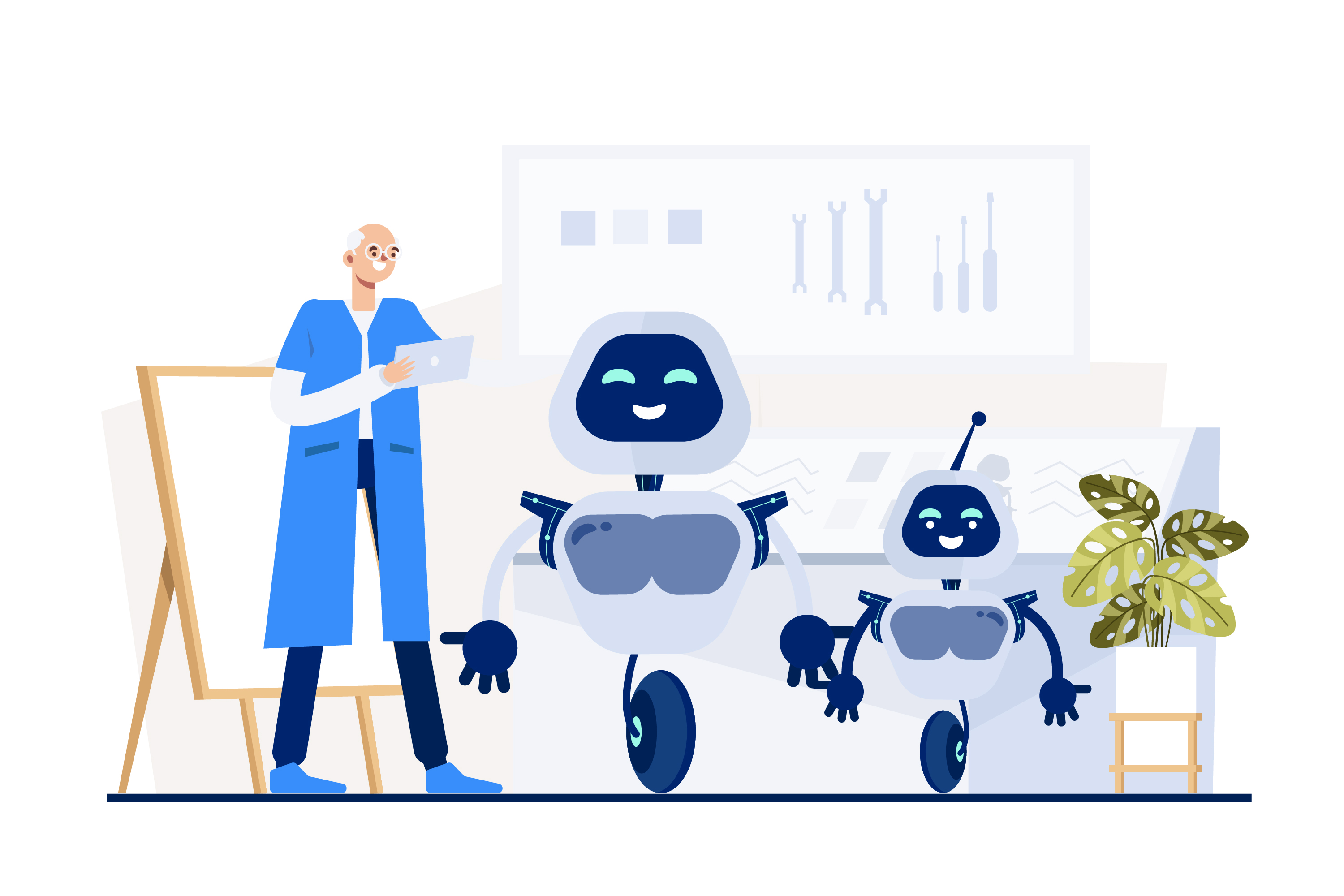How Generative AI Developers Are Shaping the Future of Technology

Strong 8k brings an ultra-HD IPTV experience to your living room and your pocket.
The rapid development of artificial intelligence (AI) has ushered in a new era of innovation, with one of the most exciting advancements being generative AI. Unlike traditional AI, which analyzes data to make predictions, generative AI creates new content, from text and images to music and video. As industries from healthcare to entertainment look to adopt this cutting-edge technology, the role of generative AI developers has become crucial. These skilled professionals are responsible for designing, training, and deploying AI systems that can generate unique outputs based on vast amounts of data.
In this article, we’ll explore the role of generative AI developers, the types of services they offer, their importance in various industries, and how businesses can collaborate with these experts to leverage AI for transformative change.
Table of Contents
What Are Generative AI Developers?
Key Responsibilities of Generative AI Developers
Skills Required for Generative AI Development
How Generative AI Developers Are Transforming Industries
Benefits of Hiring Generative AI Developers
How to Hire the Right Generative AI Developer
The Future of Generative AI Development
1. What Are Generative AI Developers?
Generative AI developers are specialized professionals who design, develop, and implement AI models capable of generating new content. These developers work with machine learning (ML) frameworks and neural networks, such as Generative Adversarial Networks (GANs), Variational Autoencoders (VAEs), and Transformer-based models like GPT (Generative Pre-trained Transformers).
The primary goal of generative AI is to use existing data to create new, meaningful outputs. For example, a generative AI model trained on a large dataset of images might be able to generate entirely new images that resemble those in the dataset but are original creations. Similarly, a language model can generate human-like text by predicting the next word in a sequence based on learned patterns.
Generative AI developers work with businesses to identify opportunities where this technology can be applied, create the appropriate models, and integrate these AI solutions into real-world applications. They are critical in ensuring that these models perform efficiently and ethically.
2. Key Responsibilities of Generative AI Developers
Generative AI developers perform a wide range of tasks, each of which requires a deep understanding of both AI theory and practical implementation. Some of their core responsibilities include:
Model Design and Development
Generative AI developers design machine learning models capable of generating new content. This involves selecting the right algorithms, such as GANs or VAEs, and building the necessary architectures. They also work on fine-tuning the models to ensure they generate high-quality, relevant content.
Data Preparation and Preprocessing
Generative AI models require large volumes of data to train. Developers are responsible for gathering, cleaning, and preprocessing data to make it usable for training the models. This may include techniques like data augmentation or normalization to ensure the model receives diverse and high-quality input.
Training and Testing
Once the model is designed and data is prepared, the next step is training. Developers use advanced computing techniques to train the model, ensuring it learns patterns and relationships in the data. After training, the model is tested on new data to evaluate its performance and adjust it for optimization.
Model Optimization and Tuning
Generative AI models often require fine-tuning to improve their accuracy and performance. Developers optimize the models by adjusting hyperparameters, improving algorithms, and ensuring the models generate content that meets business objectives.
Deployment and Integration
Generative AI models need to be deployed into production environments. Developers are responsible for integrating these models with existing systems, ensuring they work seamlessly and efficiently.
Ethical and Bias Considerations
As generative AI continues to evolve, developers must be mindful of the ethical implications of the technology. This includes addressing concerns such as bias in training data and ensuring the models generate content that adheres to ethical standards.
3. Skills Required for Generative AI Development
Generative AI development requires a combination of technical expertise, creativity, and problem-solving abilities. Some of the key skills required for generative AI developers include:
Programming Languages
Generative AI developers must be proficient in programming languages such as Python, R, and Java, as these are commonly used in machine learning development. Python, in particular, is widely used due to its rich ecosystem of machine learning libraries (e.g., TensorFlow, PyTorch, Keras).
Machine Learning and Deep Learning
A deep understanding of machine learning (ML) and deep learning (DL) concepts is crucial. Developers must be familiar with supervised and unsupervised learning, reinforcement learning, neural networks, and other advanced AI techniques.
Mathematics and Statistics
Generative AI relies heavily on mathematical models and statistical analysis. Developers need a strong foundation in linear algebra, calculus, probability, and statistics to understand how AI models work and optimize them effectively.
Data Science and Data Engineering
Data plays a central role in generative AI, and developers must be adept at handling and processing large datasets. Familiarity with data science tools and frameworks, as well as cloud platforms, is essential for managing data pipelines and training AI models.
Ethics and AI Fairness
As AI-generated content can have significant societal impacts, developers must also have an understanding of the ethical considerations involved in creating and deploying AI models. This includes managing bias in data, ensuring privacy protection, and promoting fairness in AI applications.
4. How Generative AI Developers Are Transforming Industries
Generative AI developers are playing a crucial role in revolutionizing industries by automating creative processes, improving operational efficiency, and providing new business opportunities. Some examples of how generative AI is being used across different sectors include:
Healthcare
Generative AI has the potential to accelerate drug discovery, simulate molecular structures, and create personalized treatment plans based on patient data. Developers work on creating AI models that can predict disease outcomes and generate synthetic data for medical research.
Marketing and Advertising
Generative AI is used in marketing for creating personalized content, generating social media posts, and producing ads that resonate with target audiences. AI models can generate creative ideas that align with brand messaging, saving marketers time and resources.
Entertainment and Media
Generative AI is making waves in the entertainment industry by creating music, scriptwriting, video editing, and even generating deepfake videos. Developers are building models that help streamline creative processes and enhance the viewer experience.
Finance
In finance, generative AI is used for fraud detection, algorithmic trading, and predictive analytics. Developers create models that can simulate market conditions, generate investment strategies, and predict future financial trends.
E-Commerce
Generative AI can be used to automatically generate product descriptions, personalized recommendations, and even synthetic images for e-commerce platforms. This helps businesses improve customer engagement and sales conversion rates.
5. Benefits of Hiring Generative AI Developers
Hiring specialized generative AI developers can provide businesses with significant advantages:
Expertise and Efficiency: Generative AI developers bring deep technical knowledge, allowing businesses to quickly deploy AI solutions that meet their specific needs.
Customization: These developers tailor AI models to meet the unique requirements of each business, ensuring that AI-generated content or predictions are aligned with business goals.
Competitive Advantage: Generative AI can be used to create new products, services, or customer experiences, giving businesses an edge in competitive markets.
Cost Savings: By automating repetitive tasks and enhancing productivity, generative AI can help companies reduce operational costs and increase profit margins.
6. How to Hire the Right Generative AI Developer
When hiring a generative AI developer, businesses should consider several factors:
Technical Skills: Look for developers with strong knowledge of machine learning algorithms, neural networks, and generative models such as GANs and VAEs.
Experience: Choose developers with experience in the industry you're operating in, as they will have insights into specific challenges and opportunities.
Portfolio: Review their previous projects and success stories to gauge their expertise in delivering AI solutions.
Collaboration and Communication: Effective communication is essential when working with developers. Ensure that the developer can clearly explain their processes and work collaboratively with your team.
7. The Future of Generative AI Development
As AI technology continues to advance, generative AI developers will be at the forefront of creating more sophisticated and impactful models. Future trends include:
Greater Creativity: Generative AI will become more adept at creating complex, innovative content across a wider range of media.
Real-time Applications: Real-time AI generation, such as instant content creation or live video editing, will become more prevalent in industries like gaming and media.
Improved Ethical Standards: There will be a greater focus on ensuring AI-generated content adheres to ethical guidelines, reducing risks like deepfakes or biased outputs.
8. Conclusion
Generative AI developers are essential in shaping the future of AI-powered technology. Their expertise in machine learning, deep learning, and model optimization helps businesses unlock the full potential of generative AI. By working with skilled developers, companies can enhance creativity, automate processes, and gain valuable insights that transform business strategies. As the field of generative AI continues to evolve, developers will continue to play a key role in driving innovation across industries, paving the way for a future where AI is a central force in technological advancement.
Note: IndiBlogHub features both user-submitted and editorial content. We do not verify third-party contributions. Read our Disclaimer and Privacy Policyfor details.



